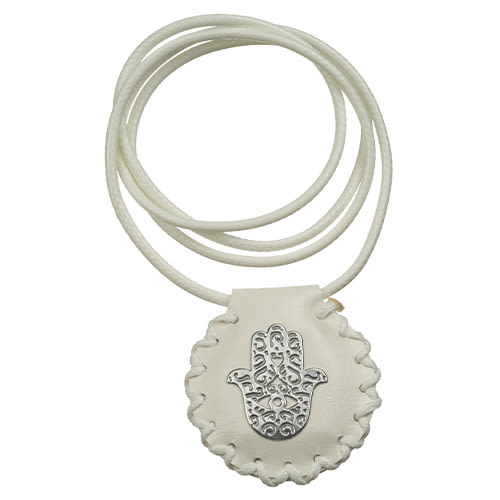
Four Corners of Compassion
Rabbi Brody gives us a simple, four-point program for self-assessment as a parent, based on the level of our compassion toward our children…

Try and remember the person that had the greatest influence on your life. Maybe it was a teacher, a relative, a grandparent, a spiritual guide, or a military commander. Notice that this particular person had certain qualities that you adored, even though he or she wasn’t always easy on you. Let’s reconstruct those qualities and put them down on paper:
1. You had no doubt that this person categorically cared about you and only wanted the best for you.
2. This person believed in you completely, even when you failed to believe in yourself.
3. This person always seemed to know how you feel.
4. This person was a great listener.
Amazingly, the above four points are a commendable definition for the word “compassion” – caring about another person, wanting the best for them, believing in them, knowing how they feel and listening to them.
The above four points are the key to success in any situation where one is required to educate and train others, whether as an athletic coach, as a military commander, or as a parent.
Calm down, machos; you want to tell me that if you acted like that toward the soldiers under your command or toward your subordinates, there would be no discipline. I vehemently disagree. There were tough, egocentric commanders all over the world who got killed from a rifle shot in the back of the head. Ask any Vietnam veteran. Yet, there were compassionate – albeit necessarily tough – commanders who cared about each individual guy under his command. The rigid borders they established were for the sole purpose of saving lives.
I’ll never forget my high-school wrestling coach who, interestingly enough, had a PhD in education. He was ever so tough on us; he too established very delineated borders that no one dared to cross. He once threw the state champion off the team for being arrogant. More than moves on the mat, he taught us how to be winners in life. I was an overweight kid with a history of asthma and not much physique. The coach overlooked all my drawbacks and honed in to the one gift Hashem gave me that few others had – unbelievable desire. The coach worked with me; I lost all my excess body weight and became slim as a lynx and almost as fast. He believed in me and showed me how to make the very best of the tools that Hashem gave me.
Most other coaches wouldn’t have allowed a boy like me to try out for the team. Our coach was never blessed with children of his own; we were his sons.
When I think about the success formula for parenting, compassion is the first word that comes to mind. Like King Solomon said in Proverbs, we must educate each child according to his or her aptitudes and aspirations, not what we necessarily desire for them. We don’t force-feed kids with our own aspirations.
So now, let’s test ourselves as parents: can we honestly say that we fulfill the above-mentioned four points of compassion with each of our children? Wouldn’t we want our children to think of us for posterity as the greatest positive influence in their lives? And we should be! Wouldn’t we want to help each of our children attain their maximal potential while building on their good points? If not, we need to change our game plan as parents.
Let’s test ourselves point by point:
1. Do we categorically care about our child? Do we only want the best for each of them? Don’t be so fast to say yes. How many parents care only about the prestige and the honor that their child brings them, with no true compassion for the child’s own happiness and welfare? How many parents “love” their children only when they come home with grades of 94 or better on tests or only if they win the lead role in the school play? How many parents disdain their children if they don’t make the first string of the varsity or become Phi Beta Kappa? That’s not loving the child; that’s selfishly loving oneself at the expense of the child and utter cruelty, not compassion. This point should be a main thought for parental self-assessment and self-correction. Happy are those who love their children unconditionally, whether the child is autistic or the class valedictorian.
2. Do we believe in each of our children? We can’t believe in each of our children if we lack emuna and don’t realize that Hashem creates each child with unique qualities that no one else has. A parent who can’t see his or her child’s special qualities has no inkling as to the spiritual identity of that child. But for a parent to really get to know a child, two things are required: One, putting his own ego aside and devoting as much individual time and attention to the child. As parents, can we pass this test? If not, we must rethink our priorities.
3. Do we know how our children feel? An empathetic and sympathetic parent can diffuse potentially traumatic situations for children simply by maintaining constant open lines of communication for the child. How many parents are too “busy” to listen to their children. A mother who’s more into Facebook and Mahjong than she is to her children will never know what makes them tick. And, a father who holds Dow-Jones above his own son will never know what makes his son happy. Buying him his own Ipod is no substitute for the parental compassion of knowing how the boy feels. Can we say that we know how each of our children feels at a particular time?
4. Do we listen to our children? This is an acute area that’s critical to the child’s emotional health. Children whose parents don’t listen to them grow up resentful and insecure. “Why does Dad laugh and joke with all the patience in the world for his silly bowling buddies, but he has no time for me!” Or, “Why does Mom talk to her girlfriends for hours, but she doesn’t have five minutes for me.” Poor-listener parents then react in a self-righteous manner, shrugging their shoulders and asking why their child is looking for love and attention out in the gutter. Ring a bell? Let’s not go there at all; parents who are compassionate listeners can look forward to the joy of happy, well-adjusted children.
Take the above 4 parental-diagnostic points with you to your self-assessment portion of daily personal prayer. You’ll see big miracles in the coming weeks if you do.
Yesterday in hitbodedut, I assessed Hashem as a parent – He is truly a perfect Father in Heaven. No one cares about each of us like He does. He believes in us more than we believe in ourselves. He always knows how we feel. And, there is no better listener in the world. We love you, Tatty!










